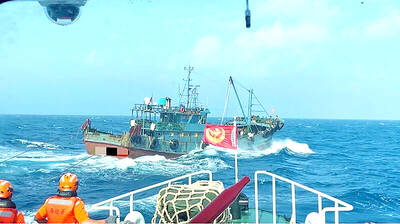Google Inc will unleash employee stock options so they can be sold to a select group of investors, opening a new moneymaking channel for rank-and-file workers at the expense of lowering the online search leader's earnings next year.
The company announced the planned shift to "transferable" stock options late on Tuesday, several months before the change takes effect.
The unique program is meant to make it easier for employees to assess the value of their stock options -- a staple of most compensation packages in Silicon Valley.
With the switch, Google is hoping to make itself an even more appealing place to work than it already is by feeding employees with free daily meals and ample opportunities to get rich off the company's high-flying stock.
Recruiting talented employees and retaining them is a top priority for Google because it's in the midst of a hiring spree that is expected to continue for several more years. Since the end of 2004, Google has been hiring an average of about 10 new employees per day to expand its payroll to nearly 10,000 employees.
"We think this will be very valuable in helping our employees understand what they own right from the beginning," said Dave Rolefson, Google's equity and executive compensation manager.
It marks the first time that a major US company has established an ongoing market where employees will be able to sell their options to sophisticated money managers looking to hedge complex financial bets.
"Other companies are going to follow suit because it's a good idea," predicted Brian Hall, a Harvard University professor of business administration who has studied the advantages of transferable stock options.
"It's an exciting concept," said Arthur Levitt, a former chairman of the Securities and Exchange Commission who is now a senior adviser for the Carlyle Group.
Only stock options issued since Google's August 2004 initial public offering will be given access to an online market to be managed by Morgan Stanley.

MILITARY BOOST: The procurement was planned after Washington recommended that Taiwan increase its stock of air defense missiles, a defense official said yesterday Taiwan is planning to order an additional four PAC-3 MSE systems and up to 500 missiles in response to an increasing number of missile sites on China’s east coast, a defense official said yesterday. The official, who spoke on condition of anonymity, said that the proposed order would be placed using the defense procurement special budget, adding that about NT$1 trillion (US$32,88 billion) has been allocated for the budget. The proposed acquisition would include launchers, missiles, and a lower tier air and missile defense radar system, they said The procurement was planned after the US military recommended that Taiwan increase

POLITICAL AGENDA: Beijing’s cross-strait Mid-Autumn Festival events are part of a ‘cultural united front’ aimed at promoting unification with Taiwan, academics said Local authorities in China have been inviting Taiwanese to participate in cross-strait Mid-Autumn Festival celebrations centered around ideals of “family and nation,” a move Taiwanese academics said politicizes the holiday to promote the idea of “one family” across the Taiwan Strait. Sources said that China’s Fujian Provincial Government is organizing about 20 cross-strait-themed events in cities including Quanzhou, Nanping, Sanming and Zhangzhou. In Zhangzhou, a festival scheduled for Wednesday is to showcase Minnan-language songs and budaixi (布袋戲) glove puppetry to highlight cultural similarities between Taiwan and the region. Elsewhere, Jiangsu Province is hosting more than 10 similar celebrations in Taizhou, Changzhou, Suzhou,

COGNITIVE WARFARE: Chinese fishing boats transmitting fake identification signals are meant to test Taiwan’s responses to different kinds of perceived incursions, a report said Chinese vessels are transmitting fake signals in Taiwan’s waters as a form of cognitive warfare, testing Taipei’s responses to various types of incursions, a report by the Institute for the Study of War said on Friday. Several Chinese fishing vessels transmitted fake automatic identification system (AIS) signals in Taiwan’s waters last month, with one mimicking a Russian warship and another impersonating a Chinese law enforcement vessel, the report said. Citing data from Starboard Maritime Intelligence, the report said that throughout August and last month, the Chinese fishing boat Minshiyu 06718 (閩獅漁06718) sailed through the Taiwan Strait while intermittently transmitting its own AIS

CHINESE INFILTRATION: Medical logistics is a lifeline during wartime and the reported CCP links of a major logistics company present a national security threat, an expert said The government would bolster its security check system to prevent China from infiltrating the nation’s medical cold chain, a national security official said yesterday. The official, who wished to stay anonymous, made the remarks after the Chinese-language magazine Mirror Media (鏡周刊) reported that Pharma Logistics (嘉里醫藥物流) is in charge of the medical logistics of about half of the nation’s major hospitals, including National Taiwan University Hospital and Taipei Veterans General Hospital. The company’s parent, Kerry TJ Logistics Co (嘉里大榮物流), is associated with the National Committee of the Chinese People’s Political Consultative Conference (CPPCC) and the Chinese People’s Liberation Army (PLA), the